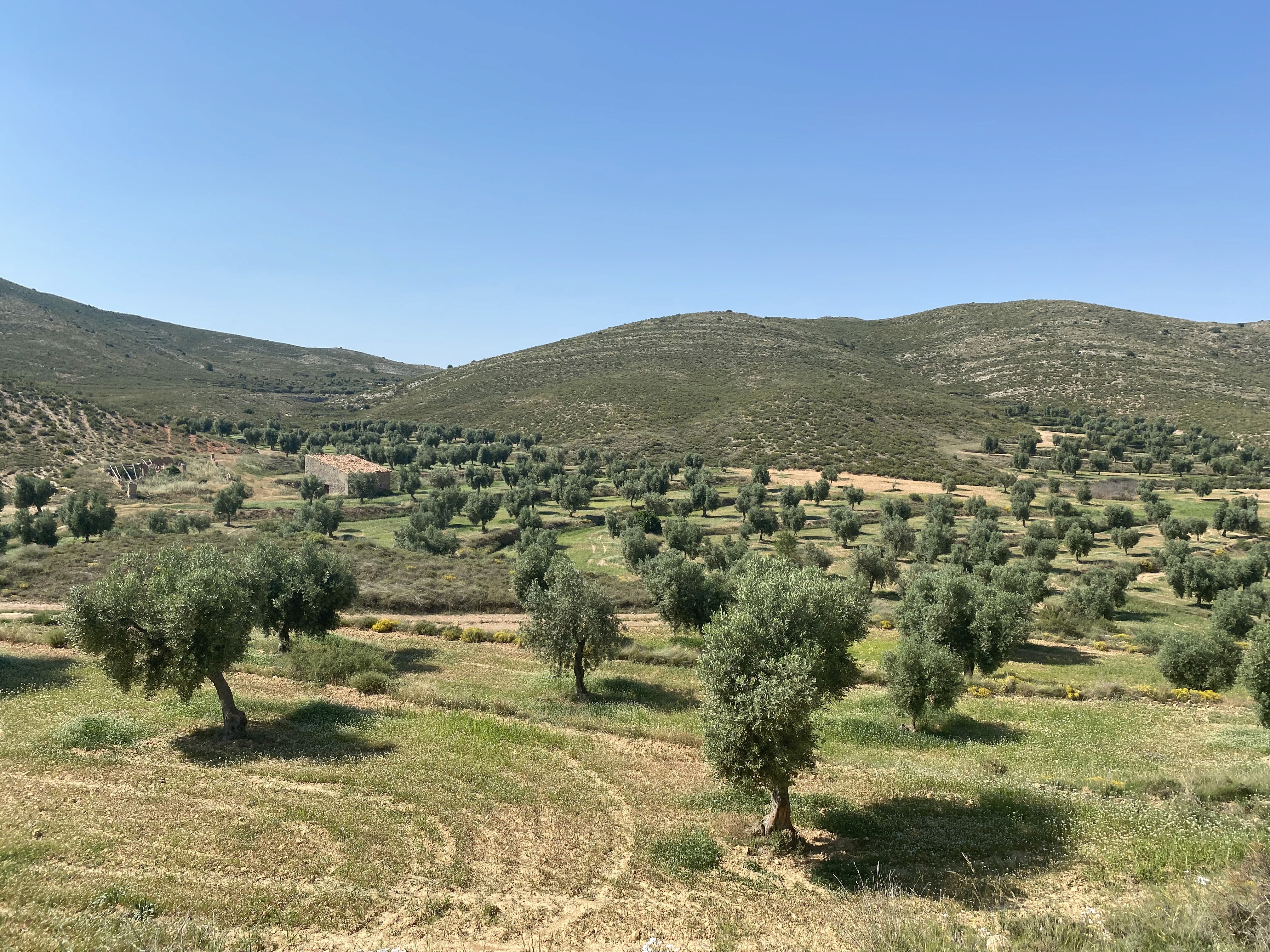Regenerative tourism
Regenerative tourism
International Day of Awareness of Food Loss and Waste
International Day of Awareness of Food Loss and Waste
28 de septiembre de 2024


By Sandra Campos, consultant and researcher specialised in tourism. (Original publication in Spanish)
On 29 September, the International Day of Awareness of Food Loss and Waste is celebrated, a key date established by the United Nations to raise awareness about one of the biggest challenges facing our planet: the alarming amount of food that never gets consumed and ends up in our landfills.
On the occasion of this event, the FiturNext Observatory is organising a new webinar on the 2025 Challenge dedicated to how tourism can contribute to the sustainable management of food.
Sustainability with tourism as a lever
According to the Food and Agriculture Organization (FAO), each year one third of all food produced worldwide is lost or wasted, amounting to 1.3 billion tons annually (1). This figure presents a threefold devastating impact:
From an economic perspective, global annual losses are estimated at over 940 billion dollars.
From an environmental standpoint, the production of food that will never be consumed represents 28% of the world's agricultural land use (2) and 21% of freshwater allocated to agriculture (3). The waste of this food alone generates 8% of global greenhouse gas emissions. In fact, if food waste were a country, it would be the third largest emitter of CO2 in the world.
On the social side, while we observe untouched food in our landfills, more than 1/9 of the world's population is undernourished, reaching a cruel figure of 280 million people worldwide suffering from acute hunger in 2023 (4).
This aspect has managed to mobilise different sectors and international organisations with the goal of finding new solutions. However, despite the measures taken, the prolongation of the current situation is estimated to lead to a 60% increase in food waste by 2030 (5).
This year's Challenge: Sustainable management of food
Food waste is a particular challenge for the tourism industry. It is estimated that at least one third of food in restaurants and hotels goes uneaten, either due to spoilage or poor management (6). In the aviation industry, especially on commercial flights, between 20% and 25% of the food served on board ends up untouched in the trash according to IATA (7).
This problem not only represents a significant economic cost for the sector, but also increases the environmental footprint of tourism operations and harms the condition of the surrounding environment, affecting the reputation of destinations committed to sustainability and moving away from the notion of quality. Furthermore, the position of the tourism sector at the consumption end of the value chain presents another reason for pursuing more efficient management. The incremental effect on the value of food that is wasted increases as one progresses up the value chain, making it more costly to throw away food at the consumption phase (8). Finally, the tourism sector offers conducive conditions for behaviour change and user awareness, as has been observed, for example, during the adoption of other sustainability measures in hotels.
In this regard, and in line with the United Nations Sustainable Development Goals (SDGs), the FiturNext Observatory has decided to dedicate this 2025 edition to how tourism can contribute to the sustainable management of food.
The Observatory has analysed several inspiring initiatives that work to reduce food waste. Some examples of these scalable practices include public entities in territorial and tourism development that create and promote routes associated with endogenous agri-food products; circular cruise companies that source local products and generate new uses for food surpluses that benefit the local community; large hotel chains committed to food sustainability and zero waste of their culinary offerings, which have managed to reduce organic surpluses by more than 40% with the help of AI systems, as well as agrotourism experiences that merge local food resources and traditional and endogenous production practices.
All of this demonstrates that, in the face of a global problem that requires coordinated and holistic actions, the tourism sector, by its transversal nature and high impact capacity, can act as a driver of change towards greater sustainability. Thus, implementing efficient management practices not only affects the environment, but also helps improve the operational efficiency of sector companies and meet the expectations and standards of an increasingly conscious and active tourist.
For all these reasons, if you want to learn more about how tourism can contribute to the sustainable management of food, FiturNext invites you to the next webinar for the 2025 edition that we will celebrate on 2 October at 17 CET. In it, we will have Adriana Bastias Barrientos, Regional Representative of O'Higgins, Foundation for Agricultural Innovation (FIA), innovation agency of the Chilean Ministry of Agriculture and Cristina Blaj, CEO and founder of Open Revenue Consulting.
By Sandra Campos, consultant and researcher specialised in tourism. (Original publication in Spanish)
On 29 September, the International Day of Awareness of Food Loss and Waste is celebrated, a key date established by the United Nations to raise awareness about one of the biggest challenges facing our planet: the alarming amount of food that never gets consumed and ends up in our landfills.
On the occasion of this event, the FiturNext Observatory is organising a new webinar on the 2025 Challenge dedicated to how tourism can contribute to the sustainable management of food.
Sustainability with tourism as a lever
According to the Food and Agriculture Organization (FAO), each year one third of all food produced worldwide is lost or wasted, amounting to 1.3 billion tons annually (1). This figure presents a threefold devastating impact:
From an economic perspective, global annual losses are estimated at over 940 billion dollars.
From an environmental standpoint, the production of food that will never be consumed represents 28% of the world's agricultural land use (2) and 21% of freshwater allocated to agriculture (3). The waste of this food alone generates 8% of global greenhouse gas emissions. In fact, if food waste were a country, it would be the third largest emitter of CO2 in the world.
On the social side, while we observe untouched food in our landfills, more than 1/9 of the world's population is undernourished, reaching a cruel figure of 280 million people worldwide suffering from acute hunger in 2023 (4).
This aspect has managed to mobilise different sectors and international organisations with the goal of finding new solutions. However, despite the measures taken, the prolongation of the current situation is estimated to lead to a 60% increase in food waste by 2030 (5).
This year's Challenge: Sustainable management of food
Food waste is a particular challenge for the tourism industry. It is estimated that at least one third of food in restaurants and hotels goes uneaten, either due to spoilage or poor management (6). In the aviation industry, especially on commercial flights, between 20% and 25% of the food served on board ends up untouched in the trash according to IATA (7).
This problem not only represents a significant economic cost for the sector, but also increases the environmental footprint of tourism operations and harms the condition of the surrounding environment, affecting the reputation of destinations committed to sustainability and moving away from the notion of quality. Furthermore, the position of the tourism sector at the consumption end of the value chain presents another reason for pursuing more efficient management. The incremental effect on the value of food that is wasted increases as one progresses up the value chain, making it more costly to throw away food at the consumption phase (8). Finally, the tourism sector offers conducive conditions for behaviour change and user awareness, as has been observed, for example, during the adoption of other sustainability measures in hotels.
In this regard, and in line with the United Nations Sustainable Development Goals (SDGs), the FiturNext Observatory has decided to dedicate this 2025 edition to how tourism can contribute to the sustainable management of food.
The Observatory has analysed several inspiring initiatives that work to reduce food waste. Some examples of these scalable practices include public entities in territorial and tourism development that create and promote routes associated with endogenous agri-food products; circular cruise companies that source local products and generate new uses for food surpluses that benefit the local community; large hotel chains committed to food sustainability and zero waste of their culinary offerings, which have managed to reduce organic surpluses by more than 40% with the help of AI systems, as well as agrotourism experiences that merge local food resources and traditional and endogenous production practices.
All of this demonstrates that, in the face of a global problem that requires coordinated and holistic actions, the tourism sector, by its transversal nature and high impact capacity, can act as a driver of change towards greater sustainability. Thus, implementing efficient management practices not only affects the environment, but also helps improve the operational efficiency of sector companies and meet the expectations and standards of an increasingly conscious and active tourist.
For all these reasons, if you want to learn more about how tourism can contribute to the sustainable management of food, FiturNext invites you to the next webinar for the 2025 edition that we will celebrate on 2 October at 17 CET. In it, we will have Adriana Bastias Barrientos, Regional Representative of O'Higgins, Foundation for Agricultural Innovation (FIA), innovation agency of the Chilean Ministry of Agriculture and Cristina Blaj, CEO and founder of Open Revenue Consulting.


